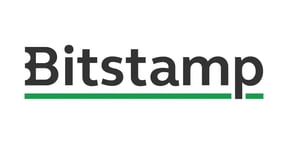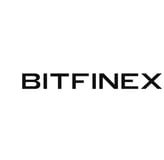Blockchain Solutions
Innovative blockchain solutions tailored for your business needs and future growth opportunities.
Smart Contract Development


Expertise in creating secure, efficient smart contracts for various applications and industries.




Blockchain Consulting
Strategic guidance on blockchain implementation, ensuring alignment with your business objectives and goals.
Comprehensive blockchain integration services to enhance operational efficiency and transparency.
Blockchain Integration

Binance, the world’s largest exchange, has received regulatory approval from the Swedish Financial Supervisory Authority (Swedish FSA) to provide digital asset-related services such as management and trading in digital currencies within the Scandinavian nation. The latest license procurement brings Binance a step closer to global adoption.
The development was recently announced by the exchange through its official Twitter handle. “Furthering our commitment to compliance across Europe, this registration gives residents in Sweden access to a broad range of our regulated crypto and Web3 services,” Binance said in a tweet today, sharing a link to the official announcement.
Binance disclosed that the processes involved in obtaining the regulatory approval had been on for months, as it had been in constant talks with the Swedish FSA. The license finally gives Binance the full legal regulatory backing to offer its robust crypto-focused services to residents in Sweden, including but not limited to crypto trading, staking, and fiat deposits.
Binance Chief Changpeng “CZ” Zhao also called attention to the development, pointing out that this would mark the exchange’s seventh regulatory license within the European Union, as it looks to expand its reach on a global scale.
“Binance continues to demonstrate its commitment to work closely with regulatory agencies to uphold global standards. Our registration in Sweden is the result of many months of diligent, hard work from our team,” Richard Teng, Binance’s Head of Europe and MENA, remarked, speaking on the achievement. Teng also expressed his gratitude to the Swedish FSA for their support during the approval process.
The recent license procurement follows six previous approvals granted to Binance by nations within the European Union, including Poland, Lithuania, Spain, France, Italy, and Cyprus. In addition, the exchange has also received approval licenses from eight other jurisdictions across several continents, making this its 15th license globally.
In December 2021, Binance announced its first in-principle regulatory license in the Middle East and North Africa (MENA) region from the Central Bank of Bahrain. On the same day, CZ revealed that the exchange’s Canadian unit had been approved as a money services provider.e your text here...
Binance Receives Regulatory Approval to Operate in Sweden
Cryptocurrency scams in Sweden have taken multiple forms, including fraudulent initial coin offerings (ICOs), Ponzi schemes, phishing attacks, and fake crypto exchanges. Common scams have lured unsuspecting investors with promises of high returns on cryptocurrency investments or fake digital wallets that siphon off funds. Other scams involve celebrity endorsements (either fabricated or manipulated) to create trust and credibility around fraudulent projects.
One notorious scam that gained attention in Sweden involved the fake investment platform "Bitcoin Revolution." The platform claimed to use sophisticated algorithms to guarantee high profits, often using well-known Swedish figures as bait for legitimacy. Victims of such scams often lost their life savings, contributing to a growing public distrust of cryptocurrency investments.
The economic impact of crypto scams in Sweden can be analyzed from multiple angles:
Loss of Consumer Trust: The growing prevalence of crypto scams has eroded public trust in digital currencies and online investments. While Sweden is known for its high digital literacy, the complexity of cryptocurrencies has made even well-informed citizens vulnerable to fraudulent schemes. This mistrust can discourage potential investors from participating in the crypto market, hindering the growth of legitimate blockchain-based businesses and startups in Sweden.
Financial Losses: Individual investors and businesses have suffered significant financial losses due to scams. According to Sweden’s National Council for Crime Prevention (Brottsförebyggande rådet), hundreds of millions of Swedish kronor have been lost to cryptocurrency fraud over the past few years. The impact is not just limited to victims; it affects the broader financial system by creating a volatile and unpredictable market for digital assets.
Strain on Law Enforcement: Crypto scams add pressure to law enforcement agencies and financial regulators in Sweden. Tracking and prosecuting cybercriminals is difficult due to the anonymous nature of cryptocurrency transactions and the international scope of many scams. This has led to an increase in resources and training required for Swedish law enforcement to combat such crimes, diverting attention from other areas.
Disruption to Financial Stability: Widespread crypto fraud could disrupt Sweden's financial stability. Although cryptocurrencies are not yet mainstream, growing investments in digital assets mean that financial instability in this market could have knock-on effects. For instance, if a large segment of investors falls prey to scams, it could cause a ripple effect in traditional financial markets and savings institutions.
Crypto Scams in Sweden
Impact on the Economy
To mitigate the rising tide of cryptocurrency fraud, Swedish authorities have taken several steps aimed at protecting investors and curbing illegal activities:
Regulatory Oversight and Licensing: The Swedish Financial Supervisory Authority (Finansinspektionen, FI) has enhanced its oversight over crypto businesses and exchanges operating in Sweden. They have introduced mandatory registration for crypto service providers, requiring them to comply with anti-money laundering (AML) and counter-terrorism financing (CTF) regulations. This ensures that legitimate businesses are closely monitored, making it more difficult for fraudsters to operate within Sweden’s borders.
Public Awareness Campaigns: Swedish authorities have launched public awareness campaigns to educate consumers about the risks of cryptocurrency investments. The FI regularly publishes warnings about suspicious companies and scams on its website, offering guidance on how to identify fraudulent schemes. Moreover, the Swedish Police have collaborated with financial institutions to disseminate information on safe cryptocurrency practices.
Collaboration with International Partners: Given the borderless nature of cryptocurrencies, Sweden has been active in collaborating with international agencies, including Europol and Interpol, to tackle cross-border crypto scams. This cooperation is crucial because many crypto scams are orchestrated from outside the country, making it difficult to pursue legal action without international coordination.
Enhanced Law Enforcement Capabilities: Swedish police and financial crime units have been increasing their technical expertise and tools to investigate blockchain transactions and track illicit activities. They have also sought to improve the prosecution process for cybercrimes by working with blockchain analysis firms that specialize in tracing cryptocurrency transactions and identifying the perpetrators behind scams.
Stricter Advertising Rules: To prevent misleading advertisements related to cryptocurrency investments, Sweden has imposed tighter rules on how crypto-related products can be marketed to consumers. The Advertising Ombudsman in Sweden ensures that marketing campaigns for digital assets are clear and do not exaggerate potential profits or understate the risks involved in these investments.
Central Bank Digital Currency (CBDC) Development: Sweden's central bank, the Riksbank, has been exploring the development of its own digital currency, the e-krona. Although still in the experimental phase, a state-backed digital currency could offer a safer and more regulated alternative to private cryptocurrencies. The introduction of a CBDC could reduce the demand for speculative and potentially risky digital assets, thus lowering the risk of scams associated with unregulated cryptocurrencies...
Sweden’s Response to Crypto Scams


The rise in cryptocurrency scams has posed a significant challenge to Sweden’s economy, leading to financial losses, erosion of consumer trust, and increasing the workload on law enforcement. However, the Swedish government, financial regulators, and law enforcement agencies have responded with a multi-pronged approach aimed at enhancing regulation, increasing public awareness, and boosting international cooperation.
While it remains to be seen whether these measures will be entirely effective in curbing the tide of crypto scams, Sweden’s proactive stance demonstrates a commitment to safeguarding the integrity of its financial system and protecting consumers in an increasingly digital economy. As Sweden continues to advance digital innovation, it must strike a balance between fostering the growth of blockchain technology and minimizing the risks associated with cryptocurrencies.





Supported by


Our Partners
Showcasing trusted partners, digital wallets, and exchange platforms.










Chain Inspect (EU) © 2024. All rights reserved.
